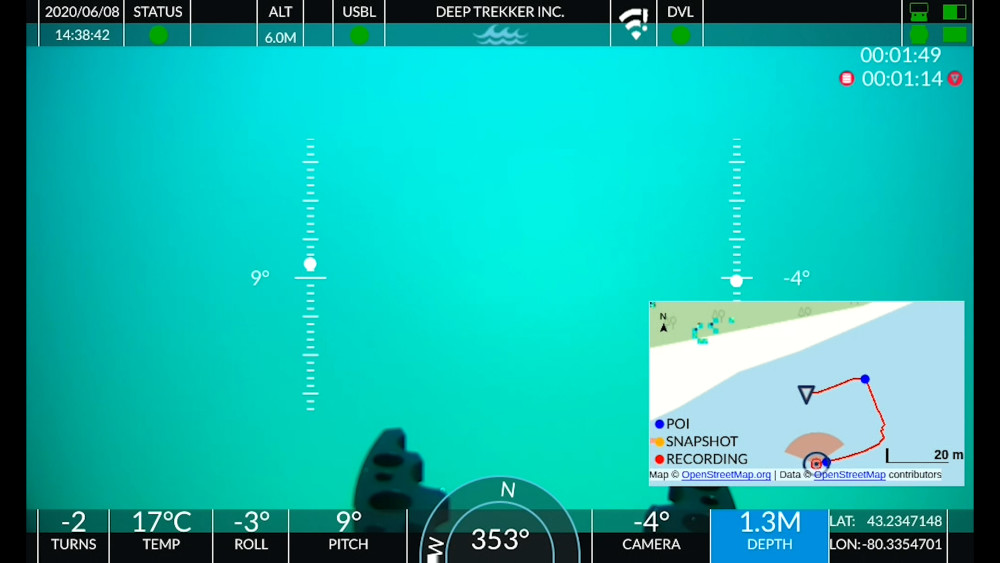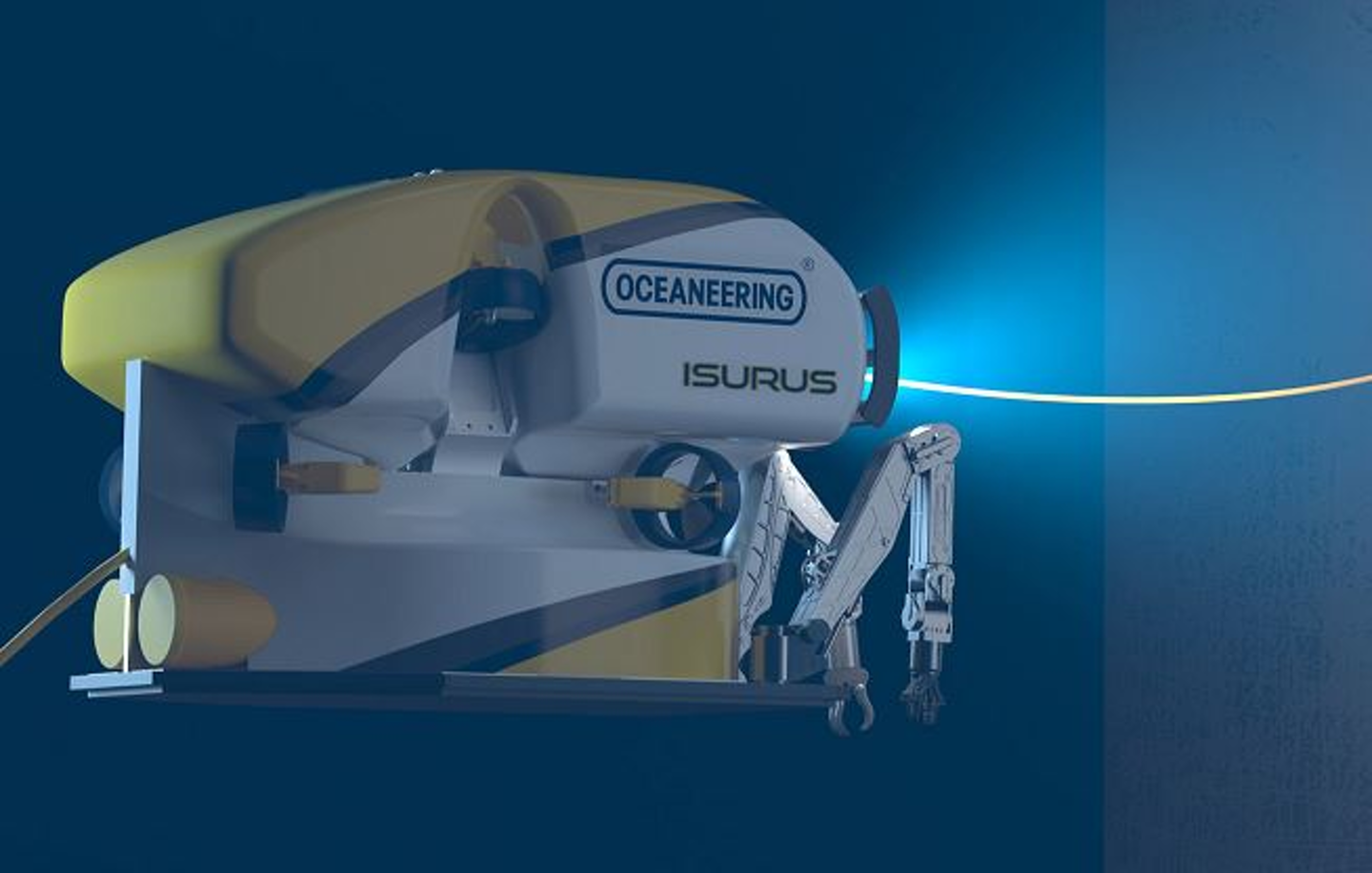Home › Forums › ROV › ROV Industry Vocational Training › Commerscial courses
- This topic has 33 replies, 11 voices, and was last updated 17 years, 7 months ago by
flyingduck.
-
AuthorPosts
-
August 19, 2007 at 11:24 pm #13336
Ray Shields
ParticipantIts OK, you snakke Engelesk better than I snakker Norsk
Apart from swearing of course, I can manage that in several languages now (and order a beer of course).
Are you still down in Fort William just now? When does that course end? I think the present course had 2 weeks in Aberdeen doing external courses such as Manual Handling etc. first. I believe there is a fibre optics course in Aberdeen on 7th Sept.
August 20, 2007 at 7:02 am #13337K2
ParticipantI did a course in ’98. I had a sound engineering background but knew nothing of the offshore industry. The first couple of hours were interesting but the remaining three weeks were a waste of time. There was a lot of waiting while the instructor tried to explain Ohms Law to a bus driver (one of many examples I could give) and I did wonder about the Instructor when he tried to explain sonar AGC to me, his interpretation was wrong but I couldn’t be bothered to argue even though I’d just spent the last two years as a sonar engineer. I didn’t complain though as I wasn’t paying
Four out of twelve guys passed the exams, the eight that failed had a resit and (oddly!!!) passed a few hours later. I got a job after my first interview and am still out here doing reasonably well. As for the other chaps on the course, I know some failed miserably offshore but there are at least four of the twelve doing well to this day.
Nope, I wouldn’t recommend the course to anyone with a technical background or without but that’s based on the course I did and I can’t see how things have altered to make me change my opinion but everyone to their own.
August 20, 2007 at 7:24 am #13338Anderre
ParticipantAre you still down in Fort William just now? When does that course end? I think the present course had 2 weeks in Aberdeen doing external courses such as Manual Handling etc. first. I believe there is a fibre optics course in Aberdeen on 7th Sept.
My course ended on friday, so I´m currently home refurbin´ my house, but Fugros new class of newly employed arrived saturday morning to do their three weeks @ TUC.
– We had one day in Aberdeen getting told about Fugro worldwide and had a run around the workshop. The external course we did, was the Part 17 course (IEC 60079/17) witch for me, was one of the more useful topics covered.I think that Fugro is doing a right thing by sending people off to this course or similar if the newly employed hasn´t been involved with ROV´s before. I have some experience, an must admit that I had serious problems motivating my self…
But I also think it should be mandatory for new guys to spend a month on the workshop and participate in turning around the veihcles and get som hands on experience.August 20, 2007 at 8:32 am #13339Andy Shiers
ParticipantBloody good idea
The ROV company has got you to do an in – house training scheme ,
Yes
Now that is using the old brain matter
Now all you need to do is stick with them for at least two years absorbing info
Good luckAugust 20, 2007 at 10:56 am #13340Anderre
ParticipantBloody good idea
Jada, jada, jada …. Sarcasm comes easy with you, doesn´t it
August 20, 2007 at 11:06 am #13341Andy Shiers
ParticipantActually , I was being genuine
No sarcasm intendedAugust 20, 2007 at 11:21 am #13342flyingduck
ParticipantPharoes is in egypt is it not.
Yull still hae til learn ti spik right ina
August 20, 2007 at 11:53 am #13343Andy Shiers
ParticipantAugust 20, 2007 at 7:40 pm #13344Ray Shields
ParticipantBut I also think it should be mandatory for new guys to spend a month on the workshop and participate in turning around the veihcles and get som hands on experience.
This has been suggested in the past – people should have to spend a month in the workshop and only those who show any interest in actually learning or working be put through the training course. Think of all the money the companies could save!
It would improve the quality of offshore people immensly
Re. the electronics SVQ that Fort William give – I’m sure it IS a very good electronics course, but I feel it is mainly irrelevant nowadays offshore where most faults are fixed by swapping a board (or whole unit!) rather than fault finding or repairing. Teaching peopel how to fault find however – that WOULD be a useful course!
August 20, 2007 at 9:11 pm #13345Anderre
ParticipantRe. the electronics SVQ that Fort William give – I’m sure it IS a very good electronics course, but I feel it is mainly irrelevant nowadays offshore where most faults are fixed by swapping a board (or whole unit!) rather than fault finding or repairing. Teaching peopel how to fault find however – that WOULD be a useful course!
Amen! I do not not agree to the "switch boards until it works" technique, but for many, that is the only way to go…
But how would one go about to teach somebody a systematic mindset on faultfinding? I, for one, does not posess this Jedi power where I can sense what circuit that is failing…Anderre
PadewanAugust 21, 2007 at 5:32 am #13346Savante
ParticipantIf training is not done from fundamentals, then frankly you’re just teaching people how to respond to established and well recognised problems, monkey see-monkey do. It works too.
If you are looking for a thought process (mindset) on that basis – look at the troubleshooting diagrams in the back of the seaeye users manual. It just about handles everything from balancing your umbilical resistance to tracking thruster failure problems.
This method doesn’t explain what causes the problems, but it tells you how to resolve them.
I am a believer of people hunting down their own information; either by asking for explanation from supervisors or doing your own research (which by my book deserves more kudos!).
For example, if you don’t understand what a LIM is/does, look at the serial number and go straight to the manufacturer’s web-site and offload a manual. If you go from system to system, you find so many different subtle variations and it’s important to read the manual.
August 21, 2007 at 6:45 am #13347Axeman
ParticipantWell said all …except Anderre who as a newbie has still to learn to keep his gob shut unless he has something constructive to say. I wonder if I can arrange for him to be sent onto my project for one trip. It would be a pleasure to see some of the "old farts" learn his pearls of wisdom …lamb to the slaughter.
Axeman
August 21, 2007 at 7:55 am #13348Savante
ParticipantOne way (that I don’t reccomend really) is the "lick n’ stick" method for identifying if voltages are present.
A tingling sensation is normally indicative of moving electrons and the transfer of electrical energy to another form. Typically heat and sound.
Anderre, I’d reccomend that you find a copy of the AODC 035, HND/HNC in electronics and then go from there. Learn your rope skills (monkey first/bowline/sheepshank/clove hitch (arrestor)/round turn+two half hitches).
The force is strong in this one; he is young. But he willl learn…… I sense a great disturbance.
August 21, 2007 at 8:13 am #13349flyingduck
ParticipantI wish I had hours in the workshop before I went offshore. Thats the best training by far. If I had, It would have been easier on me and the rest of the guys offshore.
August 21, 2007 at 1:03 pm #13350Ray Shields
ParticipantI have found in the past that people can be taught how to fault find. It doesn’t matter what the fault is on (a complete ROV system or your kettle), there are proven methods on the technique itself, and a lt of people don’t know it (mainly the ones who just change boards until the fault goes away!)
For example, you have lost comms to your sub (it goes down a fibre). Where do you start – start with what was the last thing to happen/be done before the failure.
We went for coffee, we came back and the comms is down, whats been happening while we’ve been away – moving cargo round the deck, have they crushed our deck cable? Seen it happen on one system before! Has someone been working inside a pod or JB before the failure? Check in there first.
Next, go on to the half method. Go to the middle of the fault, is it working to that point? Yes, OK, you’ve just ruled out 50% of the areas to be checked. Go to the middle of the area where its not working, check again, you’re now down to 25% of where the fault could be etc.
On the ROV that would be the winch JBs, TMS, JBs etc. OK, there are exceptions. Using the above rule, you would go to the TMS static JB, but thats an oily box so its easier/quicker to check in the winch rotating jb first (always exceptions to rules!)
And finally that age old statistic of 80/20. 80% of faults are caused by 20% of equipment. Where do the faults usually occur – check there first!
Some of the guys on the Fugro course in April also agreed that spending their first few weeks in the workshop helped them settle into their new job and start to understand the equipment better.
Savante – agree teaching principles are best, however offshore equipment nowadays does tend to be swap out complete units or pcbs at least, with SMT and multi layer boards its next to impossible to do anyway.
And we have enough trouble convincing new people they really DO need to spend 2 years learning before they are a pilot tech, and thats just with the basics alone!
-
AuthorPosts
- You must be logged in to reply to this topic.








